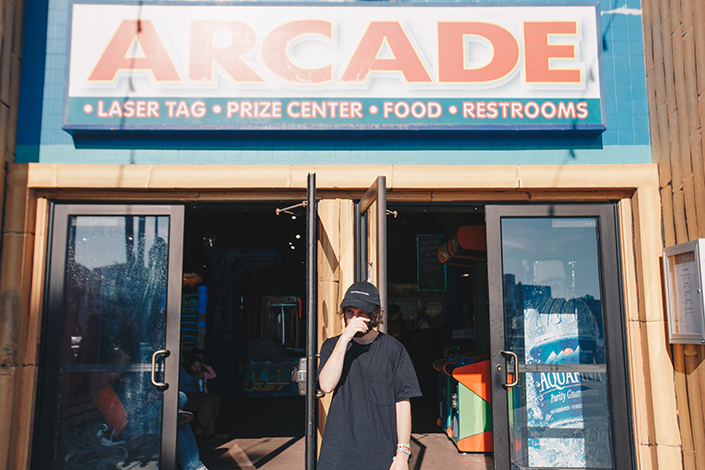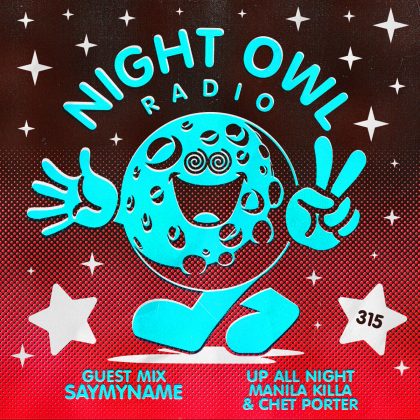How ‘Legend of Zelda’ Informs Chet Porter’s Creativity
A melody echoes. Time slows down, speeds up, folds in on itself. There is a feeling of vastness and a sense of discovery. The moment takes on another dimension. Music, it seems, is magic.
“After seeing a symphony, seeing how everything has its own spot in the frequency range and in the room, how all these small, distinct parts combine to form something both intimate and epic, it makes you think more about your production.”
This sensation isn’t new to Chet Porter, a producer from Toronto, Canada. It’s something he’s captured in enthusiastically received tracks such as 2016’s “Stay” featuring Chelsea Cutler (released through ODESZA’s Foreign Family Collective) and remixes of Louis the Child, Hitmane, Galantis and D.R.A.M., among others.
Transportive moments and fortified sense memories are something he’ll conjure when he plays Nocturnal Wonderland in September, offering euphoric motifs and custom visuals. But they’re also something far more entrenched in his psyche—a physical and emotional resonance rooted in childhood.
First as a boy, and now as a man, Porter has always openly loved playing Nintendo’s Legend of Zelda, a video game franchise in which music really is magic—a means to move through time, through worlds, and a perfect medium through which to discuss what goes into an impactful track.
“[The Zelda series] just has so much emotion in it,” reflects Porter. “When you compare it to the Super Mario series—where the music is fun or spooky, but just there to bounce forward—Zelda holds so much more personality, so much more melancholy. It’s simple yet powerful, a work of genius the way it’s just these small repeating parts, but it can evoke such a feeling.

“I love big, energetic tracks, but often what sucks me in are the songs that flow into vibey, cleansing moments.”
Growing up, Porter would skip parties and quit sports to pursue music (first with a band, then on a laptop), while using video games and the outdoors as his palate refreshers. You can still find flashes of emo, ambient, and Zelda permeating Porter’s music in various ways.
In the most direct way, he’s peppered sets with an edit of a song from the 2011 Wii game Skyward Sword, a type of lullaby contrasted with a Drake vocal and an 808.
In a more diffuse sense, Porter admits to taking a bus to Montreal to see Symphony of the Goddesses, a concert series presenting orchestral renditions and medleys of Zelda game soundtracks—an experience imbued with so much scope and nostalgia, he says it brought him to tears.
“After seeing a symphony, seeing how everything has its own spot in the frequency range and in the room, how all these small, distinct parts combine to form something both intimate and epic, it makes you think more about your production,” Porter confesses.
Inspired by not only sweeping video games, but also indie pop, movie scores (such as the work of Hans Zimmer) and big, saturated chords, Porter is working on a project that at the moment could be an EP or an LP, depending on how many songs gel. The one thing Porter is sure of is that he wants to avoid releasing all the material as standalone singles; he would rather have people absorb it as a carefully sequenced collection that may even feature some slower, more atmospheric connective tissue.
Porter describes at least one of the songs in progress as having an appropriately quest-like feel to it. “It’s the feeling of getting lost in a jungle, but you’re happy about it because there is so much to explore.”
The concept of discovery, rediscovery, and doubling back—so familiar to fans of role-playing games—extends to the way Porter approaches his production sessions in Logic. There, he will experiment with truncated and elongated frequencies generated in Omnisphere, Spire, and Serum to create a fuzzy, warm, slightly warped tone that approximates analog gear. Then, blending these with acoustic samples—kalimbas and other character-rich, plucked instruments—Porter modulates natural sounds (birds, running water, etc.) and Valhalla for reverbs to establish the soundscape, the sandbox, and the sense of place.
“A lot of the time, I will write a riff or chop up a sample and use it as a base layer,” reveals Porter. “I’ll just build on it and build on it until I’ll have written three different songs around this starting point. Then I’ll chop them up and make it into one song.”
Translating that to the stage, Porter tethers a MacBook, keyboards, and a Roland SPD-SX to trigger samples, playing a mix of commercial and unreleased material, with some throwbacks dotted throughout as emotional cues. Like a Zelda game, every Porter show can feel like it’s set in the same land, without feeling like it’s following the same map.
“You want people to have fun and not just feel like you’re just indulging your own emotions. But I do have parts when you can just stand there and sway and feel it,” says Porter. “The main thing is I want it to flow, for people to get sucked in, so I work to not do anything that shakes you out of the trance.”
Equipped with his tools and a desire to craft immersive experiences, Chet Porter is constantly improving his level design and gameplay mechanics to unlock an expressive open world for his crowds.
Follow Chet Porter on Facebook | Twitter | Instagram


